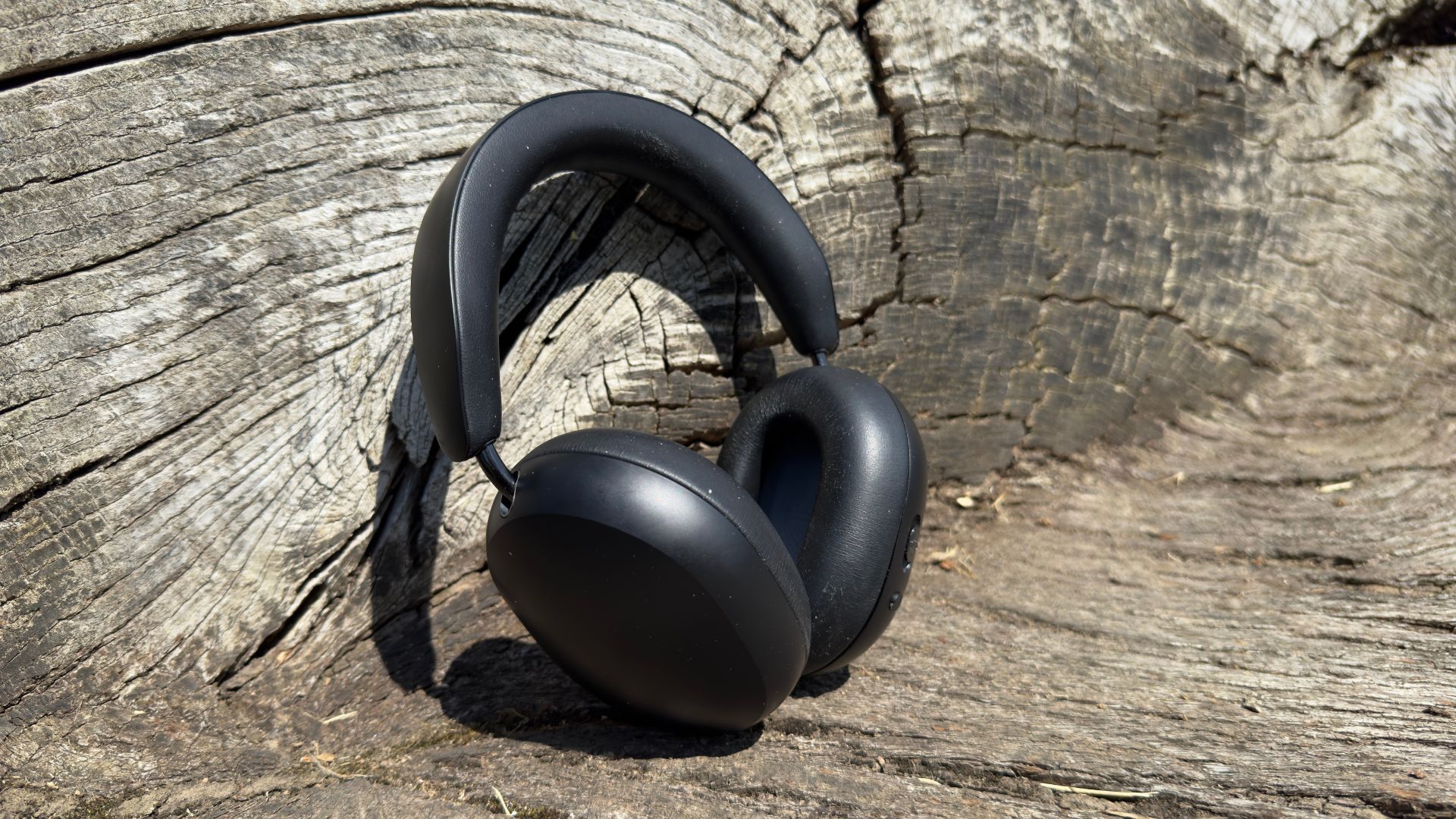
Headphones are a tricky thing to get right, particularly when they’re wireless. There are a bunch of different things to perfect, like sound quality, comfort, weight, features, and more — a balancing act that not every manufacturer is particularly good at. If you’re Sonos, then, entering a crowded space with your first pair of headphones, what do you focus on?
Where other headphone brands have emphasized the music ability of their headphones, Sonos has done something different — it’s a unit that feels designed more for at-home use than anything else. That’s not to say there’s no effort put into their out-and-about qualities, far from it, but there’s a sense that these are headphones that want to squeeze into an existing Sonos system rather than working completely on their own.
But has Sonos managed it? Are they the best headphones you can buy, or are there still elements that the brand needs to work on before they really take the headphones world by storm? We’ve been spending the last couple of weeks getting into the nitty gritty with the Sonos Ace headphones, and now we have a clear picture of the kind of product that Sonos has produced — and whether they’re a must-buy, a solid choice, or one to avoid.
Price and availability
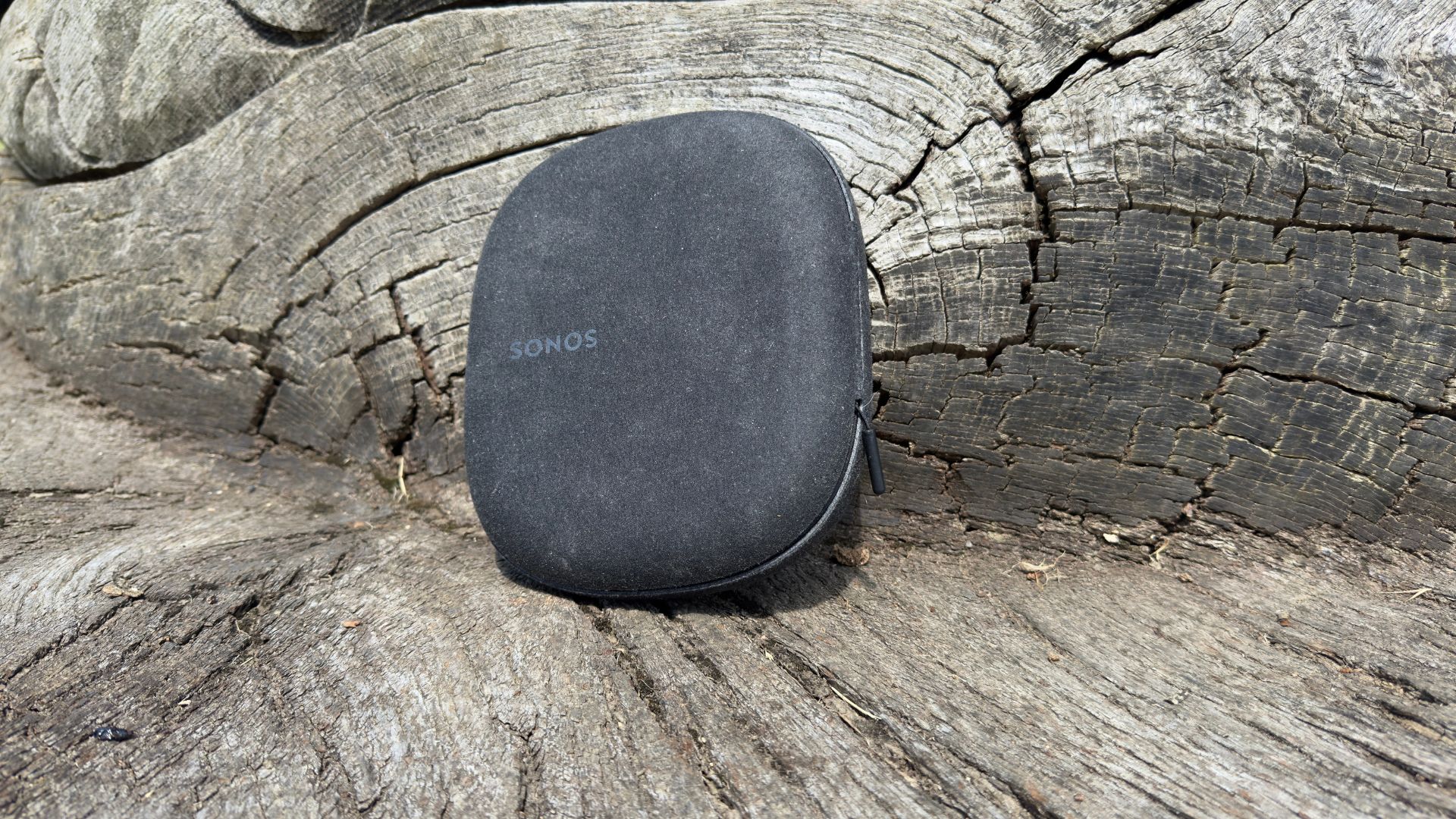
The Sonos Ace are available now, for $449/£449, at most places where you can buy headphones. That means Best Buy, Amazon, and more — where you can buy headphones, you’ll likely find a pair of Sonos Ace. Remember, however, that to get the most out of the Ace you’ll need to add in a Sonos Arc sound bar. If you’ve already got one, then you’ll be completely fine, the Ace will just seamlessly slip into your use case.
If you haven’t got one, however, then you’re going to need to factor in picking up one of those — and that’s another $899 on top of what is already a fairly expensive pair of headphones. Of course, you don’t need the Arc to have a good time with the Sonos Ace, but if you want to use the headline feature then it’s a must-have — for now.
Broadly, the Sonos Ace are priced fairly competitively to their rivals. They’re more than the equivalent Sonys, the WH-1000XM5, but around $100 less than the AirPods Max. Again, this is not a cheap pair of headphones, but a higher price was to be expected by something that wants to go up against the very best. Whether they’re worth that price, however, remains to be seen.
Build and fit
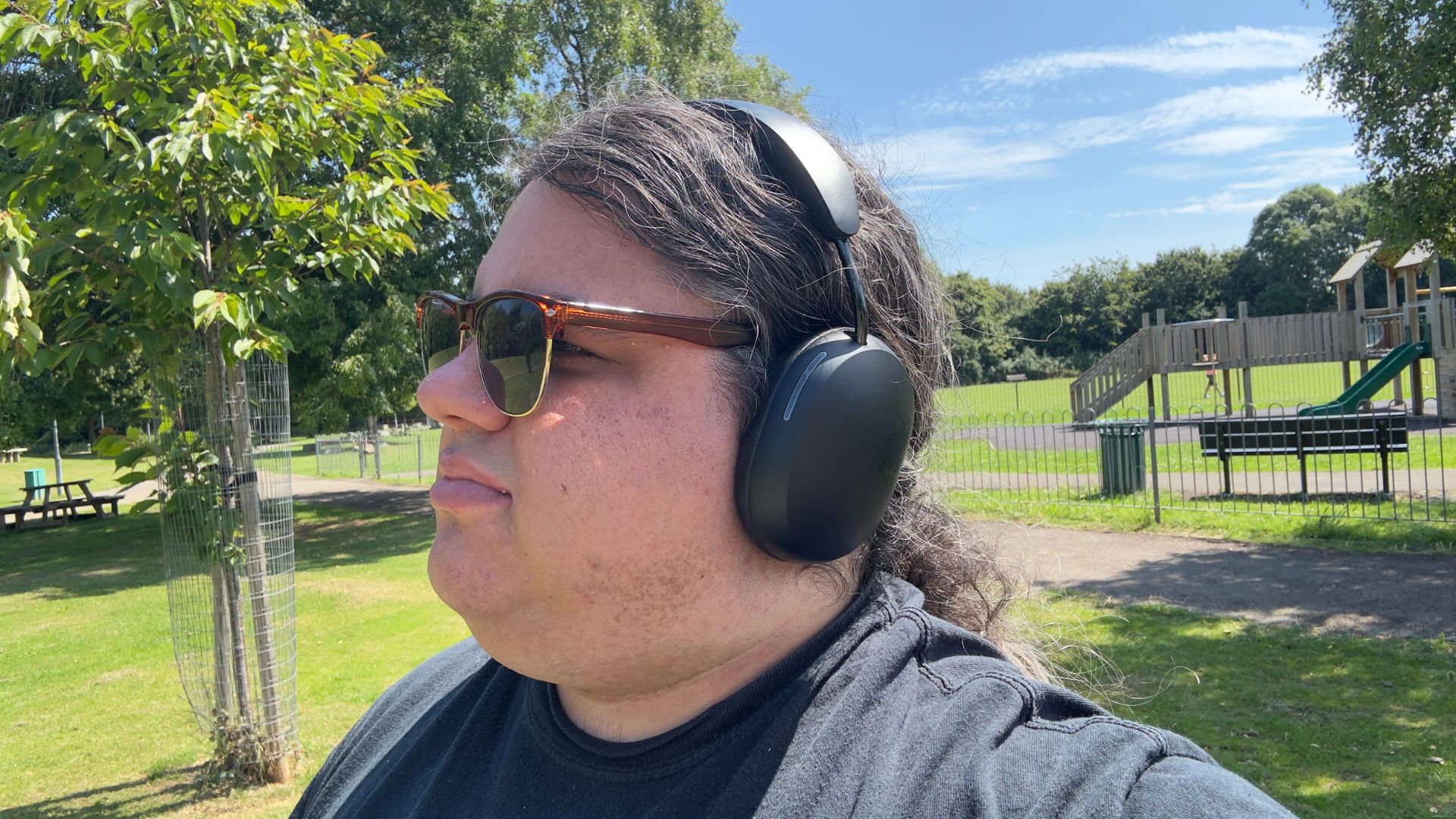
From a typical Sonos cardboard box, formed of multiple layers and environmentally friendly paper tape-sealed sections, comes a remarkably solid hard case. It feels good in the hand — sturdy, and hardwearing. It’s made out of environmentally friendly material, which does come with its own strengths and weaknesses. For one, it lends the case a kind of felt covering, more fibrous than the fabric you’ll normally find adorning headphone cases. It’s more akin to the case that comes with the extremely premium Master & Dynamic MH75, for better or for worse.
See, the black color that my headphones have come in has, initially, a premium feeling and look, but the moment it gets a chance to go near dust, or other assorted household muck, it loses its slick noir luster, taking on a mottled grey hue instead. Given that this case will not exist in a vacuum, and presumably be tossed into many a backpack (of which the contents can not be guaranteed to be immaculate), it’s a disappointment to what could otherwise be one of the best cases in the business.
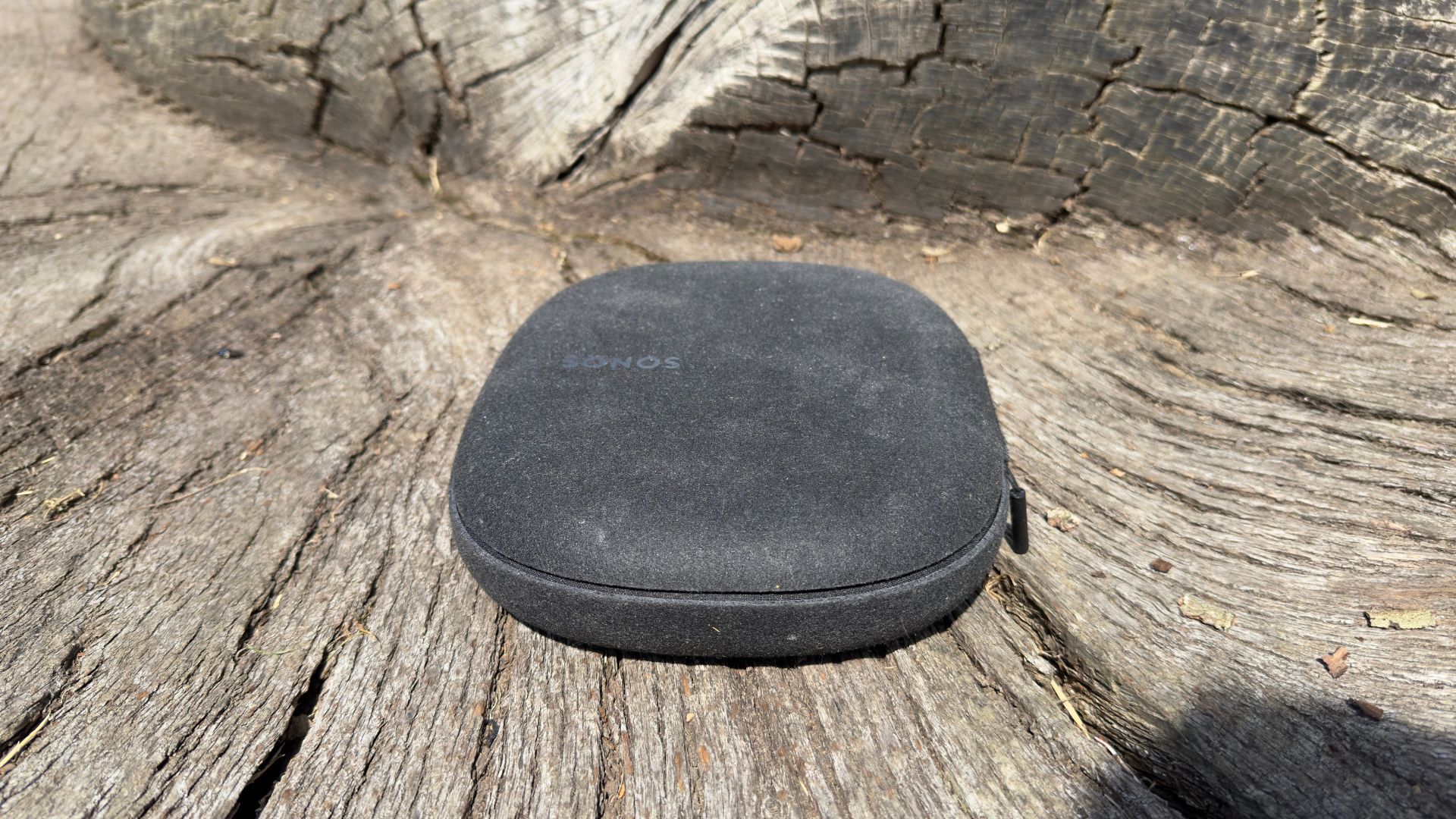
The case is compact, around the same size as the case that my older WH-1000XM4 came in (the XM5’s case grew significantly), and crucially, it’s very slim. Packing it into a bag, despite its ability to take on a layer of grime, is a great deal easier than other cases in my collection, and it’s stiff enough that it feels like it could take some punishment on the road. It’s set out nicely on the inside as well. The headphones fit perfectly in place, the earcups swiveled down, and then a small, removable, purse-like oval holds the charging and headphone jack cable. It squeezes open, which lends a kind of ‘those edges are going to squeeze their way open around the whole thing at some point’, but until then it's a compact and convenient way to store the cables you need.
As for the quality of the headphones themselves, Sonos has done a great job at making a confidence-inspiring pair of headphones. The materials used to build the headphones are top-notch, from the stainless steel of the expanding headband to the leatherette that covers the earcups and plush headband. The plastic of the earcups is top-notch, although the black color is susceptible to greasy fingerprints — easily wiped off, but ugly when you’re using the headphones out of the house. There’s a white option if you’d rather something less inky, and potentially less likely to show off greasy fingerprints.
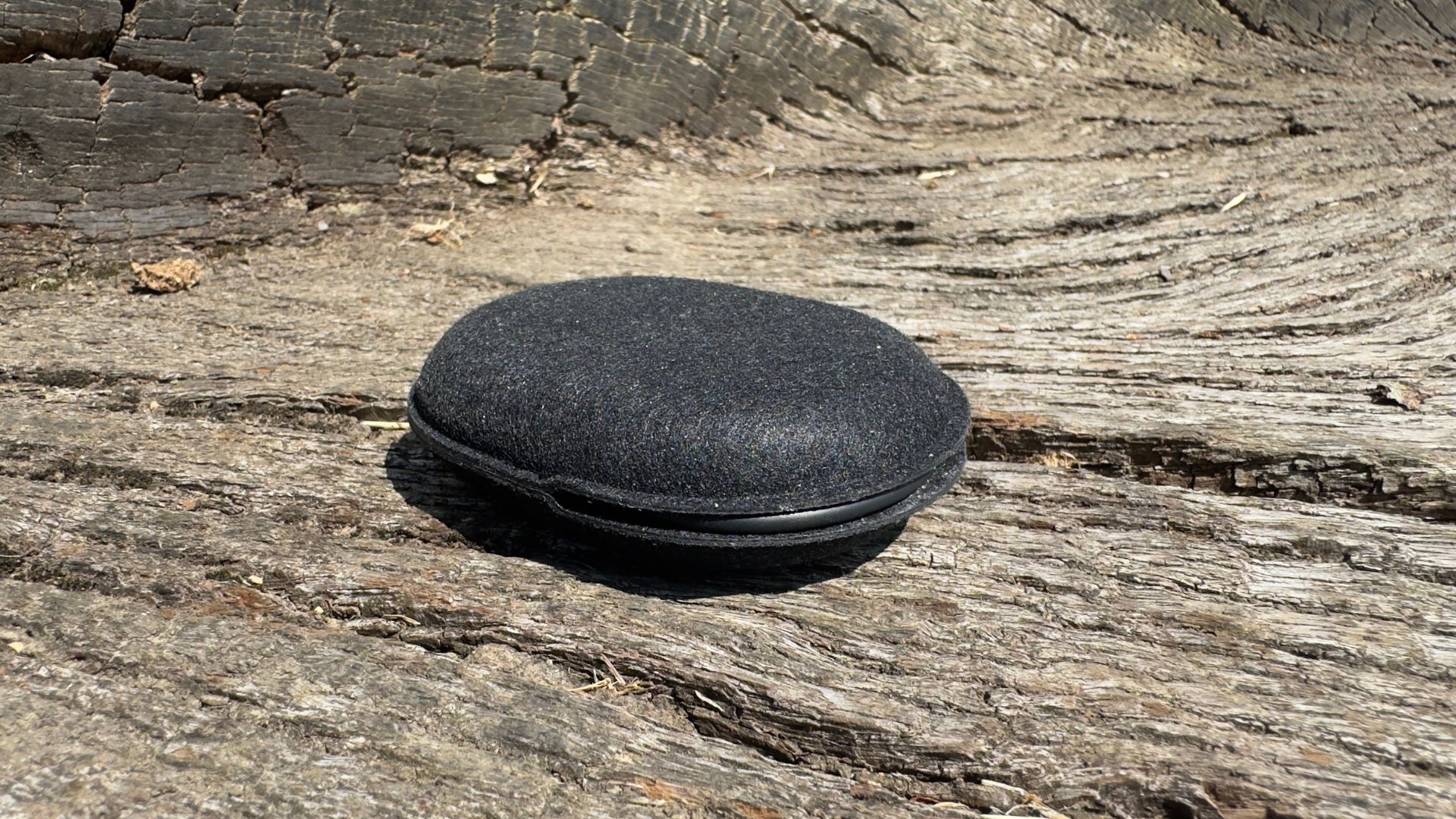
Overall, the Sonos Ace feel like a well-put-together, solid-feeling pair of wireless headphones. The sliding earcup adjustments are smooth and stiff, so they’re not going to start sagging on you over time. There are no significant wobbles that make you question their longevity, and all of the buttons have positive and quiet action. As a headset, the Ace are up there with the very best — as you’d hope, given the lofty price tag.
As for the fit, they are close to being pitch-perfect. The light weight makes you forget them once they’re on, and the plush headband and earcups feel fantastic — for most people. Clamping force is good too, not pushing on your head too much while retaining a secure fit. They pass the headbang test with flying colors, that’s for sure. But what do I mean when I say ‘for most people’?
Now, this is going to sound like a very niche complaint (mostly because it is) but if you’re like me and you’ve got a cartilage piercing on your upper ear on either side, there’s a likelihood that they’ll start to cause discomfort after a while. It’s not something I’ve experienced with other headphones either, which is why it’s worth bringing up here — and I’m not entirely sure why it happens. It could be because the opening in the earcups isn’t quite big enough for my ears, and the thinnest part of the cups are pressing my ears into the harder plastic surface below — on the side where there’s no piercing, no problem. On the side where there is, however, owch. For most people? Not a problem. For people like me? Something to consider before dropping $449 on a pair.
Features
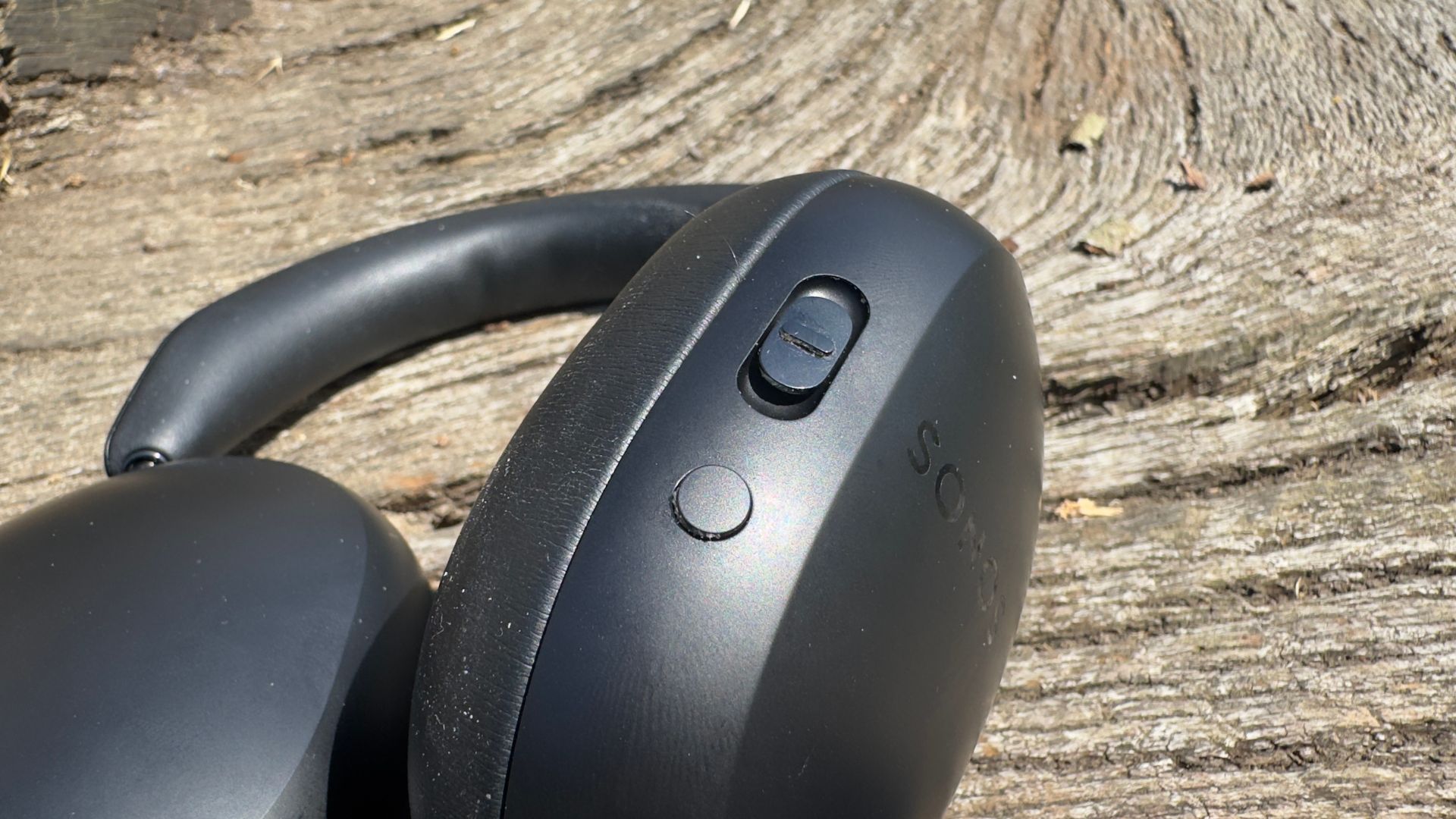
As with most wireless headphones that you can pick up from a big manufacturer in 2024, they are packed to the gunnel with features. From noise canceling to a dedicated home cinema mode, Sonos is hoping to pull you in with not only features you’ll find elsewhere but completely unique ones as well — making for an interesting set of headphones indeed.
Let’s start with the simple features, the ones that don’t take much explanation. First up — physical controls! And in this case, some of the best buttons I’ve ever seen on a pair of headphones. Where the likes of the Sony WH-1000XM5 rely on inaccurate, irritating touch controls, the Ace opt for simpler physical controls. They’re better even than the dial button combo on the AirPods Max, and feel well thought-through and ergonomic.
There are two buttons — one on the bottom of the left earcup which turns the headphones on and off and activates pairing mode. On the right earcup, you’ll find the second button which controls the noise control modes, and conjures your voice assistant. Then there’s what Sonos calls the ‘Content Key’ — a sliding switch thing that presses in. Up and down on the toggle change the volume, pressing once pauses the music, and pressing twice or three times skips forwards and backward respectively. All work well, and are placed in helpful, natural spots.
The noise canceling triggered by the button is fine.
The noise canceling triggered by the button is fine. It’s not as good as Sony’s or Apple’s that’s for sure — but it’s going to do ok at blocking out the sound of the commute, or your busy office space. Louder sounds make their way through though, and there aren’t any hybrid modes to keep things interesting. Instead, you get ‘noise canceling on’, ‘noise canceling off’, and ‘aware mode’. The latter isn’t going to read your surroundings and decide how much canceling you need, rather it uses the microphones to pump the sound into your ears so that you can hear what’s going on around you. It’s all the same modes as the AirPods Max, but given that Sony and other brands have more noise adjustable noise canceling you would have thought Sonos would have done the same.
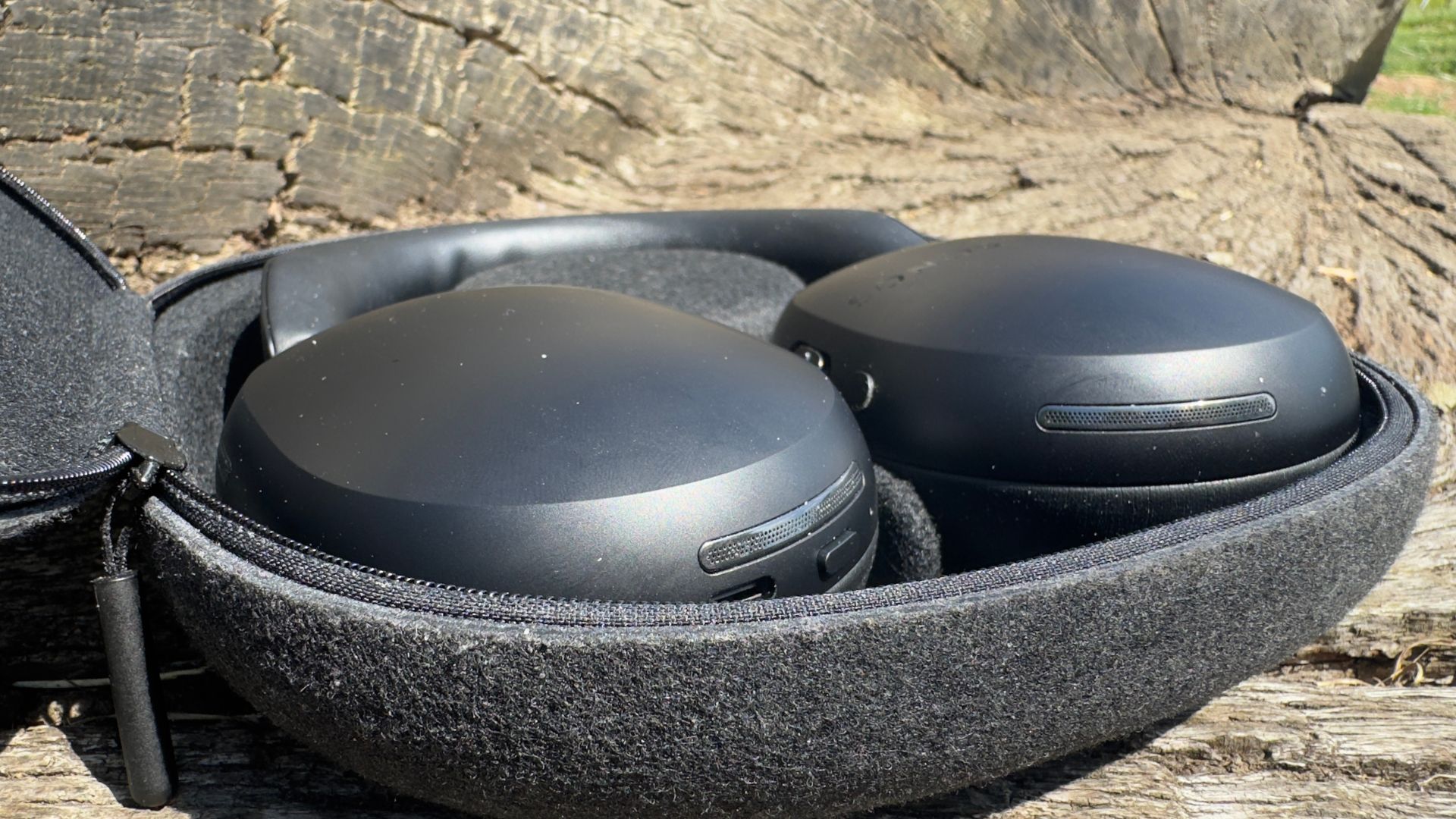
The Sonos also have wear detection, so they’ll pause your tunes when you pop them on and off. It works really well, and doesn’t get confused when I do my ‘someone's talking to me’ one earcup on one earcup off thing. That doesn’t turn them off mind you — you’re going to need to press and hold the power button, rather than just popping them back in the case as you might with the AirPods Max.
So far, the Sonos Max seem like a fairly run-of-the-mill pair of headphones. Battery life is similarly as expected — 30 hours of listening while noise canceling is on. That’s more than the AirPods Max, by the way, although there is a four-year difference between the two. There are headphones out there now that exceed that 30-hour promise with gusto, however, so if you’re after the best battery life possible there are other options that might fit your wants and needs better than the Sonos offering. Charging comes through a USB-C port on the bottom of the left earcup, and you can hook that port up to a headphone jack with an included (hear that Apple?) USB-C to 3.5mm headphone jack. That will also up the bit rate of tunes (if it's available in your app of choice) so that you can listen to hi-res lossless audio.
There’s Spatial Audio on board as well, and it’s really, really good. It works with Apple Music, and Amazon Music Unlimted. My experience with the former has been nothing short of transformative — it’s generally a feature I leave off for headphones listening, but the Sonos Ace have me searching out tracks so that I can hear their Spatial Dolby Atmos mix and get the full ‘I’m in the recording studio with James Hetfield’ effect. Perhaps it's down to Sonos’ experience making surround systems for the home, but the Ace are far and away the best Spatial Audio I’ve ever experienced. You can place every instrument with pinpoint accuracy, and get immersed in the audio more than you might have thought possible. It’s epic.
Dynamic head-tracking is here as well, and while part of me says it feels like a gimmick, it is fun.
Dynamic head-tracking is here as well, and while part of me says it feels like a gimmick, it is fun. It also works better than most examples I’ve used before, however, with a smooth transition around your head that’s much better than the jerky experience that tends to come with head-tracked Spatial Audio.
Now, I’d like to say that experience extends over to the home cinema portion of the headphones — but until I get to try it, I can’t say for sure. The idea is to hook the Ace up to a Sonos Arc soundbar, and then listen to all the audio from your TV through your headphones. It’s how Sonos wants’ the headphones to fit into a Sonos system, given that they aren’t able to strap a WiFi antenna and gubbins into a pair of headphones yet. Now, it seems easy to use, but again, once I’ve tried it out I’ll be able to report back properly.
It would be remiss of me not to mention Sonos’ app here as well — it’s never been perfect, but after a recent update many users complain about some features not working, and some being outright missing. Since the initial update, there have been a plethora of fixes, and I’ve been lucky enough to not suffer from the same issues as others. It’s worth noting going in, however, and reports are so widespread that it’s a ‘when I suffer from the issues’ rather than ‘will I suffer from the issues’. I should also say that you shouldn’t let the app put you off the headphones — the issues at hand have affected the speaker lines rather than the Ace so far.
Sound Quality
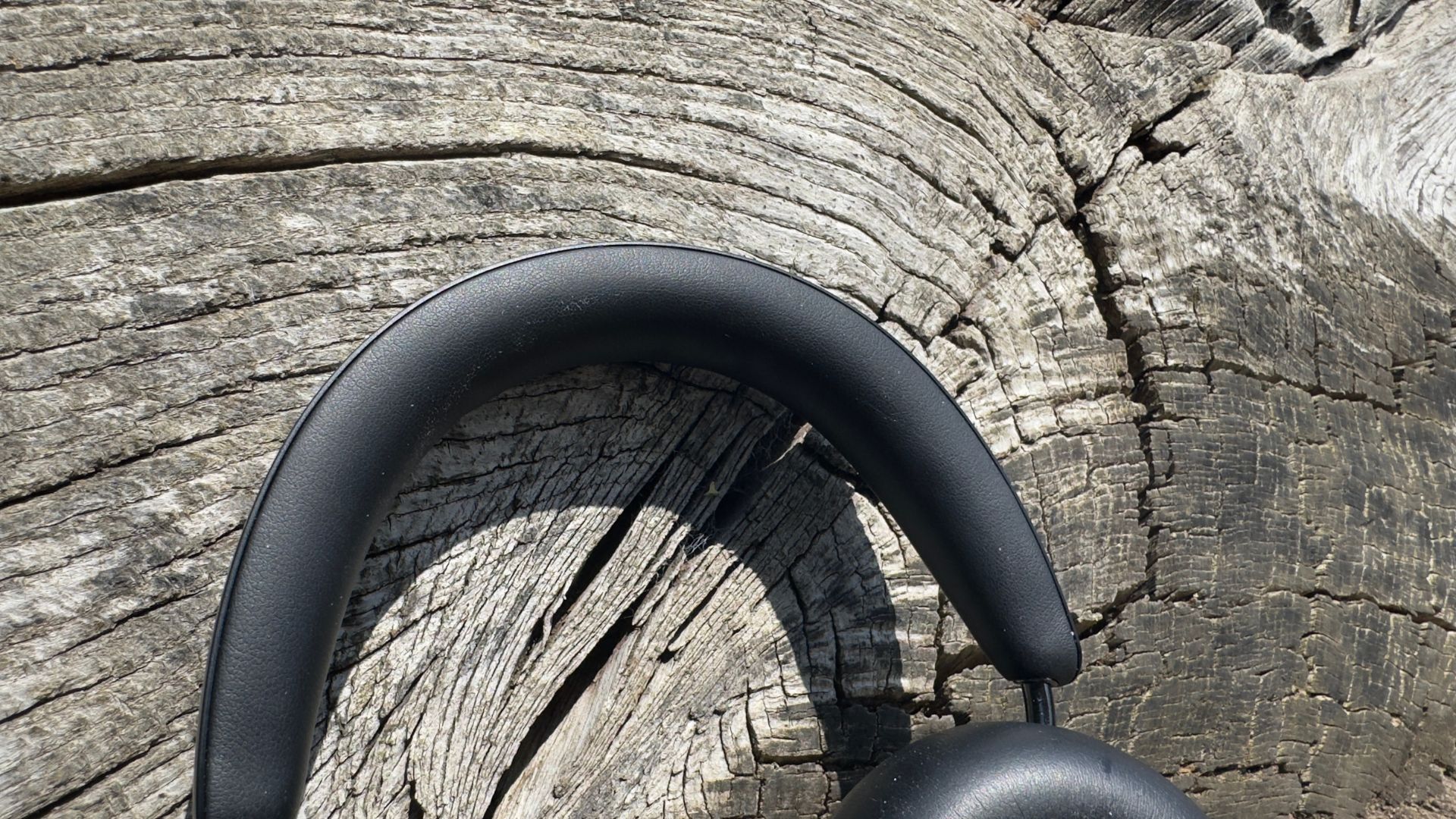
Now, you can have the most impressively featured headphones around, but if they don’t sound any good then they’re not going to be worth picking up. Thankfully, you needn’t worry about the Sonos Ace — they sound great. There’s a breadth to the sound that manages to dwarf the bassy WH-1000XM5, and a solid soundstage even when not using spatial audio. The mids are well-rounded and placed perfectly, and the highs are pin-sharp. It must be said that they’re a very bass-forward presenting headphone, but in the long run, you’re not going to mind as some deceptively rumbly sub-bass shakes your skull to your favorite tracks. It’s not particularly dynamic, with a fairly consistent noise ceiling that has a habit of flattening out sections of music, but that’s something you can say about most of their rivals. Overall, it’s a stellar performance that shows Sonos has put a great deal of work into how they sound.
Aespa’s Supernova hits in all right ways, that slick bass synth plowing through the mix like a freight train with grease on the tracks. It sounds huge, emphasized by the solid Spatial Audio mix. The girls are perfectly placed with the soundstage, and the synth stabs throughout are threatening and powerful. The Sonos Ace excel when given the chance to flex their bass drivers like this, giving you buckets and buckets of sub and mid-bass to really hit their point home.
Aespa’s Supernova hits in all right ways.
Devin Townsend’s Addicted goes all the way to eleven, and the Ace are more than happy to oblige. Hevvy Devvy’s guitar tone is already known for being monstrous, but the Sonos Ace kick it up a notch and make it indomitable. The kick drum hits hard and fast, while the more delicate parts of the track don’t get lost in the cacophony. It’s 5 minutes of heavy, and the Sonos are some of the best around for the sound.
Finally, Joe Hisaishi and the Royal Philarmonic Orchestra play the main theme of Howl’s Moving Castle with a Merry-go-round of life. The piano in the beginning is delicate and well-placed, and the orchestral build-up to the triumphant mid-way point is engaging and exciting. It’s fun, and while perhaps not as dynamic as some classical listeners might like, it’s a great way to listen to one of the best pieces of movie music around.
Competition
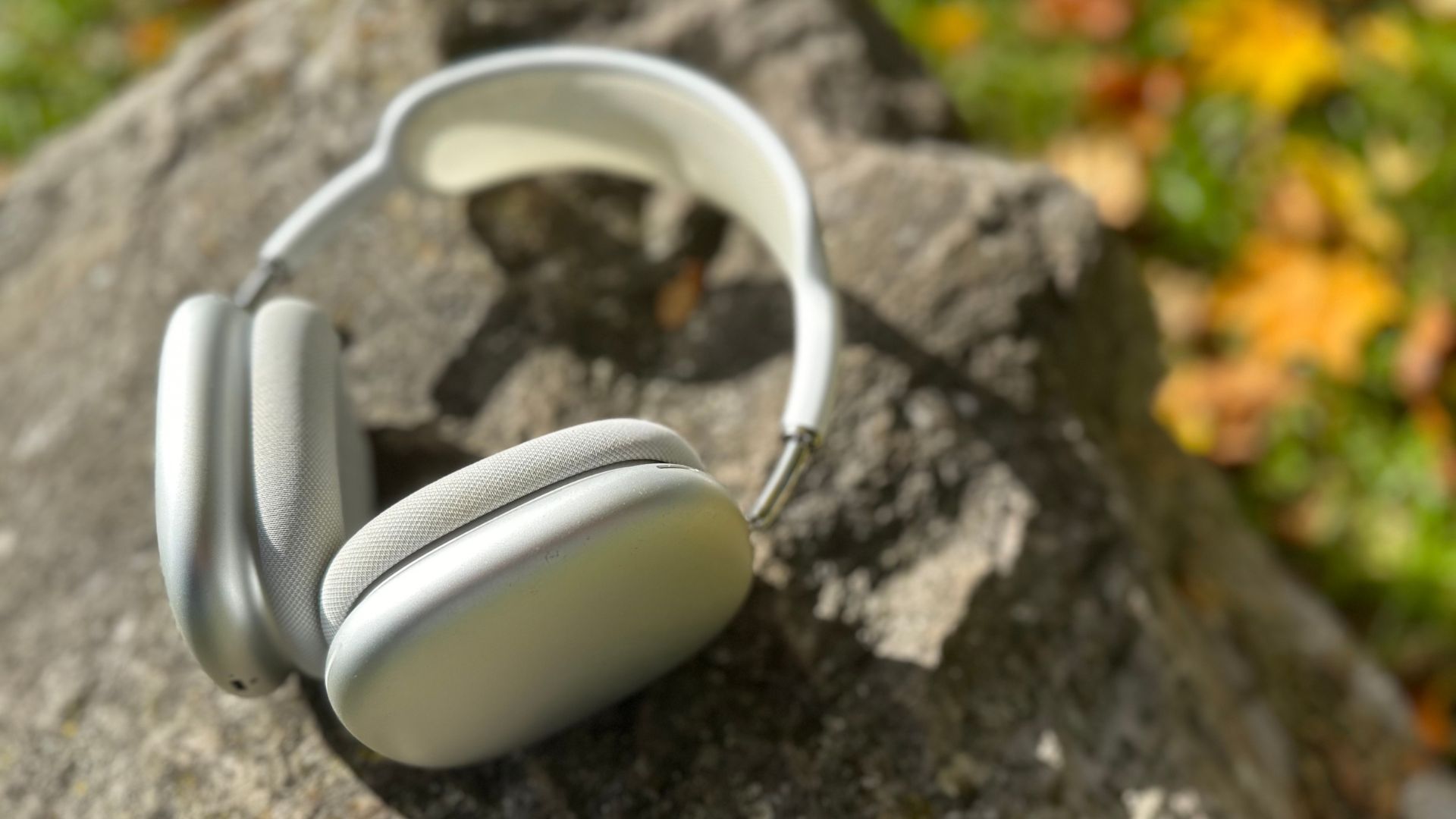
If you’re looking for a pair of headphones like the Sonos Ace, then you’ll very quickly notice that you’re spoilt for choice. For one, there are the AirPods Max, which while old, bring the sound quality, noise canceling, and top-quality build (bar the case) for $549. If you absolutely must have everything Apple, then you’re probably already popping a pair of these in your basket, the four-year date on their release schedule not bothering you and your Apple-filled house. If, however, you’re looking for something that gives you something different and even does some things better (like sound quality, case quality, and controls) for less money, then the Sonos Ace are a great alternative.
Then there’s the likes of the less expensive Sony WH1000XM5. They’re bassy headphones that won’t sound as good as the Sonos Ace, but they will block out more noise on the train or while you’re walking to work. They’re comfortable too, and they won’t hurt the ears of those with cartilage piercings. What they, lack, however, is something that only the Sonos Ace can provide.
If you own a Sonos Arc, then the Sonos Ace should almost be a no-brainer.
If you own a Sonos Arc, then the Sonos Ace should almost be a no-brainer. They connect up to your sound bar, and let you listen to your movies with surround sound without the need to bother the neighbors when you want to watch Dune 2 at max volume at 3 in the morning. It’s really the killer feature of the headphones, and, by the looks of things, it’ll be coming to Sonos’ smaller soundbars later this year. Where the Sonos Ace make a compelling case musically as to why you should grab a pair over their competition, it’s really the surround sound movies and TV that really hammer home the kind of people that should be considering grabbing a pair.
You should buy the Sonos Ace if…
You own a Sonos Arc soundbar
If you buy the Sonos Ace and don’t have access to the Arc soundbar, then you’re almost getting half a product. They’re still good without the soundbar, but you’ll always feel like you’re missing out
You want the best Spatial Audio
The head-tracked Spatial Audio is some of the best around, with plenty of depth, and crucially lacking in over-processed sound as some are.
You want something different
Sonos is a newcomer to the headphone market, and with that comes a certain degree of exclusivity. They look cool, sound good, and connect effortlessly — and look different to most of the competition.
You should not buy the Sonos Ace if…
You have a piercing in your upper ear
Take it from me — it can get sore.
You want the best noise canceling around
The noise canceling isn’t rubbish, but there are better options out there if you want something that will block out every single outside noise.
Verdict
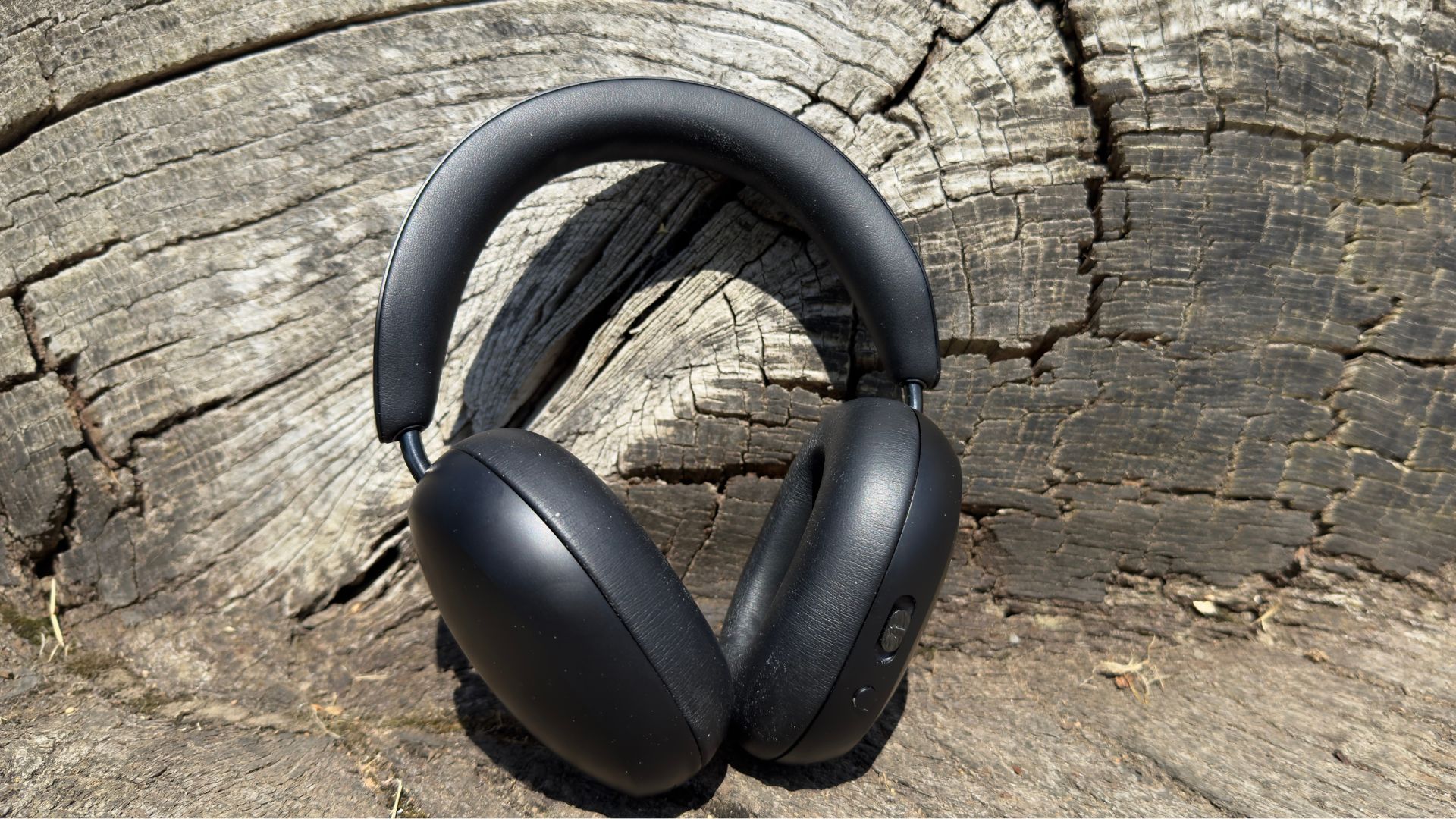
Judging the Sonos Ace completely on their own, they are an excellent pair of headphones with a great feature set that more than justifies their slightly higher price than some of their closest rivals. They’re comfortable, good-looking, and present some great sound thanks, most likely, to Sonos’ audio wizards who continue to know exactly how to dial in a piece of sound equipment.
Things become trickier when you stack them up against the competition, but even then there’s a compelling reason to pick them up — albeit one that's exclusive to current Sonos Arc users. Overall, the Ace should be on your list if you’re looking for some solid over-ear headphones, but you should consider what you find most important before taking the plunge.
The bottom line
The Sonos Ace are, unquestionably, a very nice pair of headphones — although to get everything out of them, you really need a Sonos Arc soundbar.







